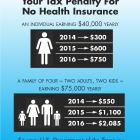Fines & Sanctions
Drug Company Tied To Connecticut Nurse Settles Kickback Case In Oregon
|
The company alleged to have paid kickbacks to a Derby nurse in exchange for her prescribing of a potent pain medication has agreed to pay $1.1 million to settle a case brought by the state of Oregon, which accused the firm of deceptive marketing and kickback payments involving the same drug. In a notice of unlawful trade practices filed against the Arizona-based drug maker Insys, the Oregon attorney general’s office charged that the company used an “unconscionable tactic by making payments to doctors that you intended to be a kickback to incentivize the doctor to prescribe Subsys.” The attorney general also charged Insys with using “unconscionable, false and deceptive sales tactics” designed to increase the “off-label” use of Subsys, which is approved only to treat breakthrough cancer pain. The case in Oregon comes as Connecticut nurse practitioner Heather Alfonso, formerly with the Comprehensive Pain and Headache Treatment Center in Derby, awaits sentencing on charges she received $83,000 in kickbacks from Insys from 2013 to 2015. In pleading guilty, Alfonso, 42, admitted that the money she was paid for attending “dinner programs” as a speaker — many of them sham dinners, with just an Insys sales representative or her friends or co-workers — influenced her prescribing of the drug, according to the U.S. Attorney’s Office for Connecticut. The charge of receipt of kickbacks in relation to a federal healthcare program carries a maximum term of imprisonment of five years and a fine of up to $250,000.


